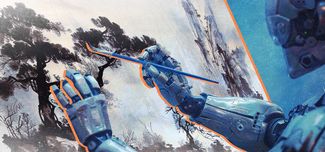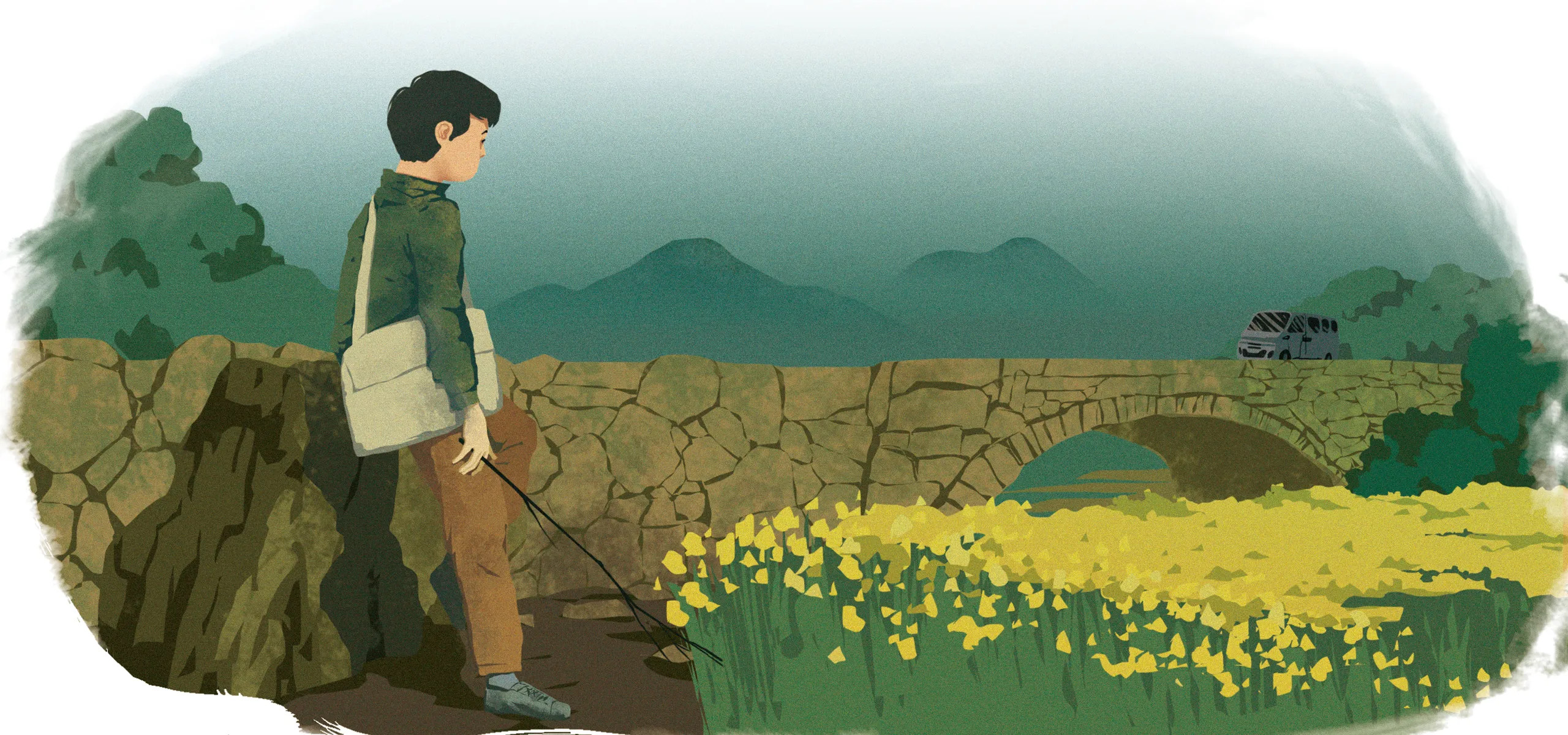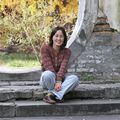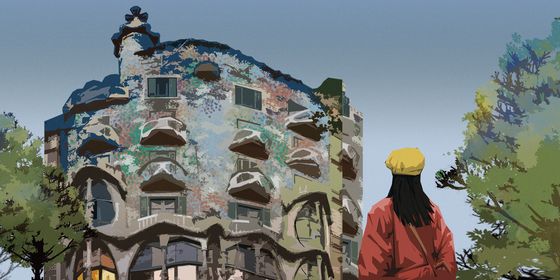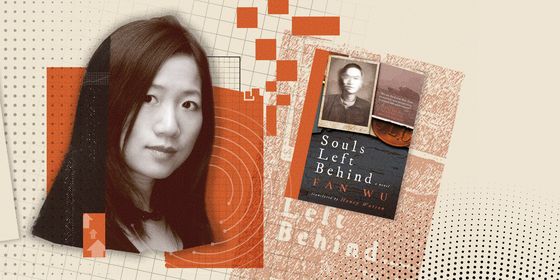In Shen Shuzhi’s depiction of waning village life, a “left-behind” child comes to terms with loneliness growing up with his grandmother
This is an insignificant village in an insignificant place. A little more than a dozen families live here, perhaps 20 at most. The fields are given over year-round to growing rice and rapeseed. Nobody grows much of anything else. In the winter, after the rice has been harvested, all that remains is the low stubble and the wide, deep marks left behind by the tracks of the harvester. Before the first frost, the stubble wilts and dries out, turning the fields a pale, earthy yellow. Some of the farmers spread the straw on their fields and burn it to fertilize the next spring’s crop. From one corner of these wide open spaces, a faint tendril of smoke begins to rise. The smoke is peaceful.
When the snow falls, the ground is covered in thick and thin bands of snow, but the distant mountains remain indigo. In the summer, the rice in the fields spreads out in a dense sheet a peculiar shade of green that sits at the juncture of blue and yellow. The sun is bright. It shines down on the people who move alone or in pairs through the fields, watering the crops, spreading pesticide, and greeting each other.
When it comes time to eat lunch, the fields are empty. Everyone returns home for their midday meal. Once they have eaten, they spread their bamboo mats on the floor and take a quick nap. The sun rises and burns down on the fields until it takes on the appearance of pale green mist. It’s so peaceful that even the grasshoppers go quiet. The pond is only half full and the sluice gate is kept tightly shut, so no more water can run out. The wind creates gentle ripples across the surface of the water. At that moment, if you stand in your doorway, facing to the west, and look around, shading your eyes against the sun, you will have the sense of a place shrouded in verdant stillness. It is only in the spring, when the air is moist, and new green growth is sprouting, that this place is possessed by a different sort of life.
There was a time when this village was not so desolate. But that was ages ago. There was no way for a kid like Lingfeng to know that. He was only 10 years old. There were only about 10 or so kids of Lingfeng’s age left in the village. In old days in the summertime, they would wash up in the pond together. Walking the dozen or so li to the township school, they would dawdle together, looking for things to amuse themselves with. But once they grew up and left, the village became even more desolate. It was difficult to imagine how that emptiness might eventually be refilled with hope. The young and able went to the city. They filed into the lower classes and worked at the sort of jobs that require only enthusiasm. Only a few young people continued their education.
The people who left the village, no matter their occupation, were referred to by those who remained as having “gone out for work.” It was the elderly who were left behind, along with some of the children. There were very few able-bodied young people left in the village. Even if a few people from a household stayed behind, some of their relatives had to have gone out. Some people went out to earn a living, and some had to remain. The men who stayed in the village drank and smoked. With their farm work on top of that, they aged prematurely: once they hit 50, they started to look much older than their age, with grim faces and hoarse voices.
After the population began to thin, even the planting and harvesting days, which were usually the most lively, became fragmentary. A harvester, borrowed from the county government, could harvest all the rice in a single week. The machine tore up the straw and spat it out. There was no longer any straw to pile up, feed to the cattle, or burn in the fields in winter. Since the harvester replaced the sickle, there was no need for the rice to be transplanted into neat lines. Seeds could be scattered haphazardly and the seedlings tossed into the field. There were no more straight lines of seedlings, and the days of whole families helping out with spring planting were gone. Only in the few low places that the harvester couldn’t reach would people still bend down to plant seedlings individually. Those had to be harvested with a sickle, as they always had.
On spring mornings, there were no longer children rubbing their eyes and stumbling sleepily out of bed to take the family cow down the dewy ridges between paddy fields. With tractors to do the work, there was no need for cows. There was no need to take them down to the pond on summer nights. There was no need to house them in barns all winter—and there was no rice straw to feed them. Nobody had to whip a cow around a paddy field for plowing. And so, most of the village cattle ended up hanging from a hook in a butcher’s stall. Once the cows were gone, the grass along the paddy ridges began to grow up all together at an alarming rate. Even on the busiest roads through the village, the sagewood grew more than a meter tall on both sides.




